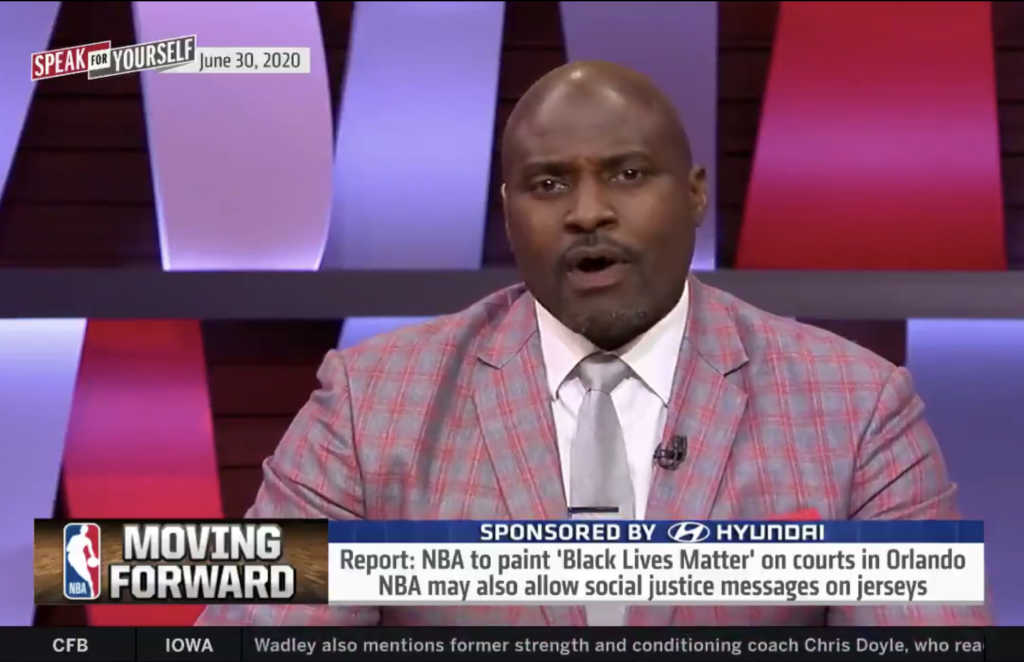It took sports commentator Marcellus Wiley, who is black, only a few minutes to Google the Black Lives Matter movement and find major problems with the organization.
In a three-minute address on his Fox Sports show “Speak for Yourself” earlier this week, the anchor explained the importance of the nuclear family structure in which he grew up as well as the family he is building now within his own marriage.
“Being a father and a husband — that’s my mission in life right now,” said Wiley. “How do I reconcile that … with this [Black Lives Matter] mission statement that says, ‘We dismantle the patriarchal practice. We disrupt the Western prescribed nuclear family structure requirement.’”
A graduate of Columbia University, Wiley said he knew how critical the family structure was long before he studied the statistics that bore out his lived experience.
“Children from single-parent homes versus two-parent homes — the children form single-parent homes (this was in 1995, I was reading this): five times more likely to commit suicide, six times more likely to be in poverty, nine times more likely to drop out of high school, 10 times more likely to abuse chemical substances, 14 times more likely to commit rape, 20 times more likely to end up in prison, and 32 times more likely to run away from home,” Wiley explained.
“I knew that. You know why I knew it?” he said. “Because a lot of my friends didn’t have family structures that were nuclear like mine and they found themselves outside of their dreams and goals and aspirations,” he continued. “So when I see that as a mission statement for Black Lives Matter, it makes me scratch my head.”
The 45-year-old Fox Sports host also bemoaned the progressive organization’s goal of eradicating “white supremacy,” pointing out he is — as a black man — hosting a very popular show on a major network alongside another black host.
“I respect your space,” he said. “I respect what you’re protesting for. But will you respect others who don’t support that same protest?”
Wiley’s comments were catalyzed by the NBA’s decision to paint “Black Lives Matter” on its courts whenever the basketball season resumes. The decision came as a reaction to players’ insistence that “the fight for racial equality and social justice be a central part” of the NBA.
Painting the three-word phrase on the court is “not a good idea,” Wiley said.
“There’s a problem when you start going down this road of freedom of expression, freedom of speech, and how much social space is allowed for those who don’t support in that same space,” he said. “And that’s where I wonder where this is going to go in terms of identity politics. We know what identity politics does — it divides and it polarizes. No matter how you want to look at it, that’s just the effect of it no matter how great the intentions are. We all know the road to hell is paved with good intentions.”



